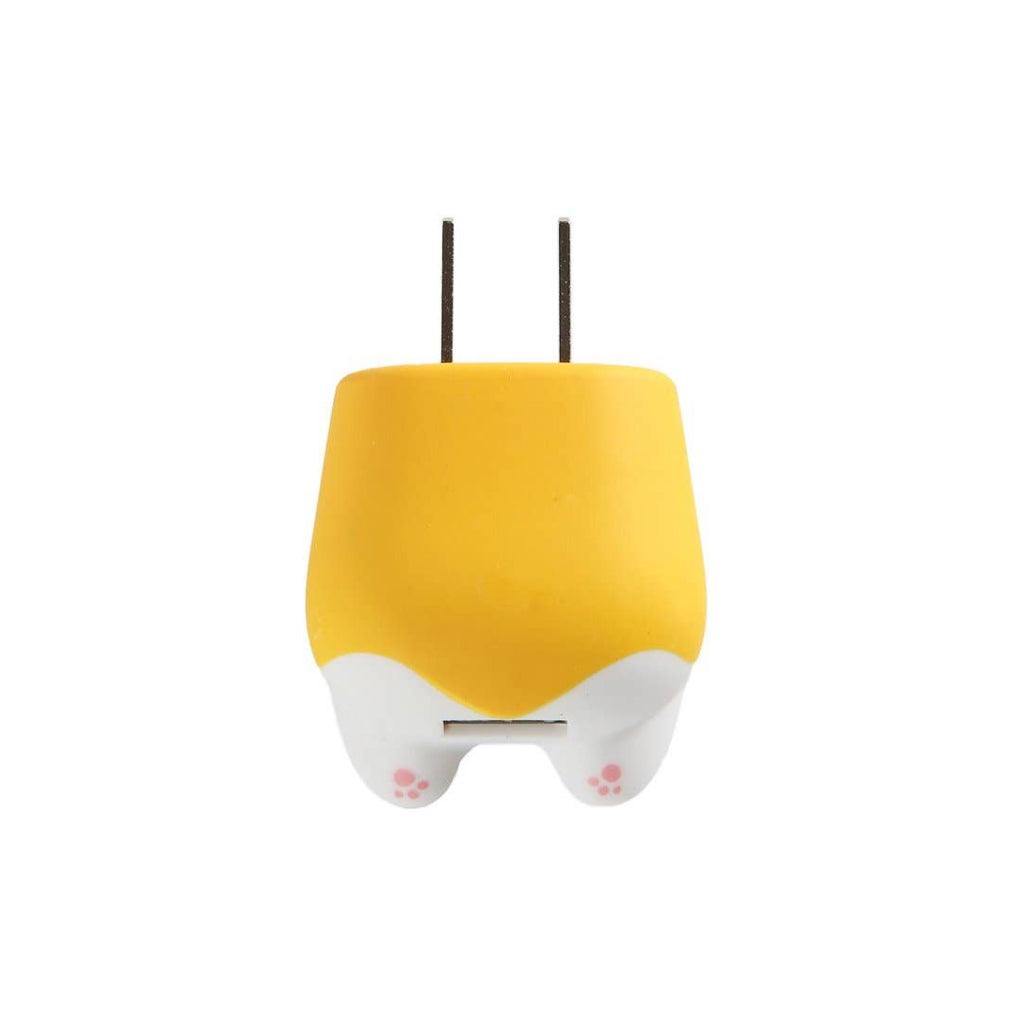Mastering the Art of Deep Cleaning: When to Do It and Why Disinfecting Is Essential
"Master the art of deep cleaning: know when and why disinfecting is essential."
Introduction:
Mastering the Art of Deep Cleaning: When to Do It and Why Disinfecting Is Essential
Deep cleaning is an essential part of maintaining a clean and healthy living environment. Knowing when to do it and understanding why disinfecting is crucial can help ensure that your home or workspace is free from harmful germs and bacteria. In this guide, we will explore the importance of deep cleaning, when to schedule it, and the benefits of disinfecting regularly.
The Importance of Deep Cleaning for a Healthy Home
Deep cleaning is an essential part of maintaining a healthy and happy home. While regular cleaning may keep things looking tidy on the surface, deep cleaning goes the extra mile to eliminate dirt, grime, and germs that can lurk in hard-to-reach places. But when should you tackle a deep cleaning session, and why is disinfecting so important? Let's dive into the art of deep cleaning and explore the benefits of keeping your home spick and span.
One of the best times to embark on a deep cleaning mission is during the change of seasons. As the weather shifts, it's a great opportunity to give your home a thorough once-over and prepare it for the upcoming months. Spring cleaning, in particular, has become a popular tradition for many households. It's a chance to declutter, organize, and scrub every nook and cranny to welcome the new season with a fresh and clean space.
Another ideal time for deep cleaning is before or after hosting guests. Whether you're throwing a party or having family stay over, giving your home a deep clean beforehand will ensure that it's in top shape for visitors. And once everyone has left, a post-guest deep clean will help restore your home to its pre-visit state and rid it of any lingering germs or messes.
But deep cleaning isn't just about making your home look good – it's also about keeping it healthy. Disinfecting surfaces, especially during cold and flu season, can help prevent the spread of illness-causing germs. High-touch areas like doorknobs, light switches, and countertops should be regularly disinfected to keep your home germ-free. And don't forget about commonly overlooked areas like remote controls, keyboards, and cell phones – these can harbor a surprising amount of bacteria and should be cleaned regularly.
In addition to disinfecting, deep cleaning can also help improve indoor air quality. Dust, pet dander, and other allergens can accumulate in carpets, upholstery, and curtains, leading to respiratory issues and allergies. By regularly vacuuming, dusting, and washing these items, you can reduce the amount of allergens in your home and breathe easier.
Deep cleaning can also extend the life of your belongings. Regularly cleaning and maintaining appliances, furniture, and other household items can prevent wear and tear and keep them looking and functioning like new for longer. Plus, a clean and well-maintained home can increase its resale value if you ever decide to put it on the market.
So, when it comes to deep cleaning, the benefits are clear. Not only does it keep your home looking great, but it also promotes a healthier living environment, improves indoor air quality, and extends the life of your belongings. Whether you tackle deep cleaning seasonally, before or after hosting guests, or as needed, making it a regular part of your cleaning routine will pay off in the long run.
In conclusion, mastering the art of deep cleaning is essential for maintaining a healthy and happy home. By knowing when to do it and understanding why disinfecting is so important, you can keep your living space clean, germ-free, and in top condition. So roll up your sleeves, grab your cleaning supplies, and get ready to transform your home into a sparkling oasis of cleanliness. Your health and happiness will thank you for it.
Creating a Seasonal Cleaning Schedule for Your House
Spring cleaning is a time-honored tradition that many people look forward to each year. It's a chance to freshen up your living space, declutter, and get rid of any lingering dust and dirt that may have accumulated over the winter months. But have you ever considered incorporating deep cleaning into your seasonal cleaning routine? Deep cleaning goes beyond the surface-level tidying up that we typically do during our regular cleaning sessions. It involves getting into all the nooks and crannies of your home to ensure that every inch is sparkling clean.
So, when is the best time to tackle a deep cleaning session? Many experts recommend doing a deep clean at least once a season, in addition to your regular cleaning routine. This will help keep your home in tip-top shape and prevent any buildup of grime and bacteria. Some people prefer to do a deep clean at the beginning of each season, while others like to spread it out over the course of the year. Ultimately, the best time to deep clean your home is whenever you feel like it needs a little extra TLC.
One of the most important aspects of deep cleaning is disinfecting. Disinfecting is essential for killing germs and bacteria that can lurk in your home, especially in high-touch areas like doorknobs, light switches, and countertops. By regularly disinfecting these surfaces, you can help prevent the spread of illness and keep your home a healthy environment for you and your family.
When creating a seasonal cleaning schedule for your house, it's important to prioritize the areas that need the most attention. Start by making a list of all the rooms in your home and the tasks that need to be done in each one. This will help you stay organized and ensure that you don't overlook anything. Some common deep cleaning tasks include dusting ceiling fans and light fixtures, cleaning out the refrigerator and freezer, and washing windows and window sills.
As you work your way through your seasonal cleaning schedule, don't forget to take breaks and pace yourself. Deep cleaning can be a physically demanding task, so it's important to listen to your body and not overexert yourself. Consider enlisting the help of family members or friends to make the process more enjoyable and efficient. You can even turn it into a fun bonding activity by playing music or rewarding yourselves with a treat after each room is cleaned.
In addition to disinfecting high-touch surfaces, it's also important to pay attention to areas that are often overlooked during regular cleaning sessions. This includes things like baseboards, air vents, and behind appliances. By thoroughly cleaning these areas, you can ensure that your home is truly spotless from top to bottom.
By incorporating deep cleaning into your seasonal cleaning routine, you can keep your home looking its best year-round. Not only will it help maintain a clean and healthy living environment, but it can also improve your mood and overall well-being. So, roll up your sleeves, put on your favorite cleaning playlist, and get ready to master the art of deep cleaning. Your home will thank you for it!
Tips for Mastering the Art of Deep Cleaning
Deep cleaning is an essential part of maintaining a clean and healthy home. While regular cleaning helps to keep surfaces tidy, deep cleaning goes a step further by targeting areas that are often overlooked. But when should you deep clean, and why is disinfecting so important? Let's dive into some tips for mastering the art of deep cleaning.
One key tip for deep cleaning is to establish a regular schedule. While daily and weekly cleaning tasks are important, setting aside time for a deep clean on a monthly or quarterly basis can help to ensure that your home stays in top condition. By creating a schedule and sticking to it, you can prevent dirt and grime from building up and becoming more difficult to remove.
When it comes to deep cleaning, one of the most important tasks is disinfecting. Disinfecting surfaces helps to kill germs and bacteria, reducing the risk of illness and keeping your home safe and healthy. High-touch surfaces such as doorknobs, light switches, and countertops should be disinfected regularly to prevent the spread of germs.
In addition to disinfecting, deep cleaning also involves tackling areas that are often neglected during regular cleaning. This includes cleaning behind and under furniture, dusting ceiling fans and light fixtures, and washing curtains and blinds. By paying attention to these often-overlooked areas, you can ensure that your home is truly clean from top to bottom.
Another important tip for deep cleaning is to declutter before you begin. Clutter can make it difficult to clean effectively, so take the time to clear out any unnecessary items before you start deep cleaning. This will not only make the cleaning process easier but will also help to create a more organized and inviting space.
When deep cleaning, it's also important to use the right tools and products for the job. Invest in high-quality cleaning supplies, such as microfiber cloths, scrub brushes, and disinfectant sprays, to ensure that you are able to effectively clean and disinfect your home. Using the right tools will make the deep cleaning process more efficient and help you achieve the best results.
One final tip for mastering the art of deep cleaning is to enlist the help of family members or roommates. Deep cleaning can be a big job, so don't be afraid to ask for assistance. Dividing up tasks and working together can make the process more manageable and ensure that every area of your home receives the attention it needs.
In conclusion, deep cleaning is an important part of maintaining a clean and healthy home. By establishing a regular schedule, disinfecting high-touch surfaces, tackling neglected areas, decluttering before you begin, using the right tools and products, and enlisting the help of others, you can master the art of deep cleaning and keep your home looking its best. So roll up your sleeves, put on some music, and get ready to give your home the deep clean it deserves.
Why Disinfecting Is Essential for a Germ-Free Living Environment

Deep cleaning is an essential part of maintaining a clean and healthy living environment. While regular cleaning may keep surfaces looking tidy, deep cleaning goes a step further by removing dirt, grime, and germs that can accumulate over time. One crucial aspect of deep cleaning is disinfecting, which is essential for killing harmful bacteria and viruses that can cause illness.
Disinfecting is the process of using chemicals to kill germs on surfaces. This is especially important in high-traffic areas of the home, such as the kitchen and bathroom, where bacteria and viruses can easily spread. By regularly disinfecting these areas, you can help prevent the spread of illness and keep your home safe and healthy for you and your family.
But when should you deep clean and disinfect your home? The answer to this question depends on a variety of factors, including the size of your household, the number of pets you have, and whether anyone in your home has allergies or respiratory issues. In general, it's a good idea to deep clean and disinfect your home at least once a week, focusing on high-touch surfaces such as doorknobs, light switches, and countertops.
In addition to regular deep cleaning, there are certain times when it's especially important to disinfect your home. For example, if someone in your household is sick, it's crucial to disinfect surfaces regularly to prevent the spread of illness. You should also disinfect your home after hosting a gathering or party, as germs can easily spread among guests.
Another important time to disinfect your home is during flu season. The flu virus can survive on surfaces for up to 48 hours, so it's essential to regularly disinfect high-touch surfaces to prevent the spread of illness. By taking these extra precautions during flu season, you can help protect yourself and your family from getting sick.
In addition to preventing illness, disinfecting your home can also help improve indoor air quality. Dust, pet dander, and other allergens can accumulate on surfaces and in the air, leading to respiratory issues and allergies. By regularly disinfecting your home, you can help remove these allergens and create a cleaner, healthier living environment.
When it comes to disinfecting your home, it's essential to use the right products and techniques. Look for disinfectants that are approved by the Environmental Protection Agency (EPA) and follow the manufacturer's instructions for proper use. It's also important to wear gloves and ventilate the area while disinfecting to protect yourself from harmful chemicals.
In conclusion, disinfecting is an essential part of deep cleaning your home. By regularly disinfecting high-touch surfaces and following proper cleaning techniques, you can help prevent the spread of illness, improve indoor air quality, and create a cleaner, healthier living environment for you and your family. So roll up your sleeves, grab your disinfectant, and get ready to master the art of deep cleaning!
How to Sanitize Your Home Effectively
Deep cleaning your home may seem like a daunting task, but it is an essential part of maintaining a healthy living environment. Not only does deep cleaning help to keep your home looking its best, but it also helps to eliminate germs and bacteria that can cause illness. In this article, we will discuss when to do a deep clean and why disinfecting is essential for keeping your home safe and healthy.
When it comes to deep cleaning, the frequency will depend on a variety of factors, including the size of your home, the number of occupants, and your lifestyle. However, a good rule of thumb is to do a deep clean at least once a season. This will help to ensure that your home stays clean and germ-free throughout the year.
In addition to regular deep cleaning, it is also important to disinfect frequently touched surfaces on a daily basis. This includes doorknobs, light switches, countertops, and other high-traffic areas. Disinfecting these surfaces will help to prevent the spread of germs and bacteria, especially during cold and flu season.
When it comes to disinfecting, there are a variety of products available on the market, including disinfectant wipes, sprays, and cleaners. It is important to choose a product that is effective against a wide range of germs and bacteria, including viruses like the flu and COVID-19. Look for products that are labeled as "disinfectant" or "antibacterial" to ensure that you are getting the best protection for your home.
When disinfecting your home, be sure to follow the instructions on the product label carefully. This will help to ensure that you are using the product correctly and effectively. In addition, be sure to wear gloves and ventilate the area while disinfecting to protect yourself from harmful fumes.
In addition to disinfecting, it is also important to clean and sanitize your cleaning tools regularly. This includes sponges, mops, and vacuum cleaners. These tools can harbor germs and bacteria if not cleaned properly, so be sure to wash them regularly with hot water and soap.
When deep cleaning your home, be sure to pay special attention to areas that are often overlooked, such as baseboards, ceiling fans, and behind appliances. These areas can harbor dust and dirt, as well as germs and bacteria, so be sure to clean them thoroughly.
In conclusion, deep cleaning your home is an essential part of maintaining a healthy living environment. By disinfecting frequently touched surfaces and using the right products, you can help to prevent the spread of germs and bacteria in your home. Remember to deep clean at least once a season and to clean and sanitize your cleaning tools regularly. By following these tips, you can master the art of deep cleaning and keep your home safe and healthy for you and your family.
Deep Cleaning vs. Regular Cleaning: Understanding the Difference
Deep cleaning is an essential part of maintaining a clean and healthy living environment. While regular cleaning involves basic tasks like dusting, vacuuming, and wiping down surfaces, deep cleaning goes a step further by targeting areas that are often overlooked. Understanding the difference between the two can help you prioritize your cleaning tasks and ensure that your home is truly clean.
Regular cleaning is typically done on a weekly or bi-weekly basis and focuses on maintaining the cleanliness of your home. This includes tasks like sweeping, mopping, and wiping down countertops. While regular cleaning is important for keeping your home looking tidy, it may not always be enough to remove built-up dirt, grime, and germs.
Deep cleaning, on the other hand, involves a more thorough and intensive cleaning process. This includes tasks like scrubbing grout, cleaning behind appliances, and disinfecting high-touch surfaces. Deep cleaning is typically done on a quarterly or semi-annual basis and is essential for removing deep-seated dirt and bacteria that can accumulate over time.
Knowing when to deep clean your home is key to maintaining a clean and healthy living environment. While regular cleaning can help keep your home looking tidy, deep cleaning is necessary to remove hidden dirt and germs. It's important to schedule deep cleaning sessions regularly to ensure that your home is truly clean and free of harmful bacteria.
One of the most important aspects of deep cleaning is disinfecting. Disinfecting is the process of killing germs and bacteria on surfaces to prevent the spread of illness. This is especially important in high-traffic areas like kitchens and bathrooms, where germs can easily spread from person to person.
Disinfecting is essential for maintaining a healthy living environment, especially during cold and flu season. By regularly disinfecting high-touch surfaces like doorknobs, light switches, and countertops, you can help prevent the spread of illness and keep your family healthy.
In addition to disinfecting, deep cleaning also involves removing built-up dirt and grime from hard-to-reach areas. This includes tasks like cleaning behind appliances, scrubbing grout, and washing curtains and blinds. By targeting these areas during a deep cleaning session, you can ensure that your home is truly clean from top to bottom.
While deep cleaning may seem like a daunting task, breaking it down into smaller, manageable tasks can make it more manageable. Start by creating a deep cleaning checklist that outlines the tasks you need to complete. This can help you stay organized and ensure that you don't overlook any important areas.
In conclusion, mastering the art of deep cleaning is essential for maintaining a clean and healthy living environment. By understanding the difference between regular cleaning and deep cleaning, you can prioritize your cleaning tasks and ensure that your home is truly clean. Remember to schedule deep cleaning sessions regularly and focus on disinfecting high-touch surfaces to prevent the spread of illness. With a little time and effort, you can master the art of deep cleaning and enjoy a clean and healthy home.
Benefits of Deep Cleaning for Maintaining Your Home
Deep cleaning your home may seem like a daunting task, but the benefits far outweigh the effort involved. Not only does deep cleaning help maintain the appearance of your home, but it also plays a crucial role in keeping you and your family healthy. In this article, we will explore the importance of deep cleaning, when to do it, and why disinfecting is essential for a clean and healthy living environment.
One of the main benefits of deep cleaning is that it helps maintain the overall cleanliness and hygiene of your home. Regular cleaning may keep surfaces looking tidy, but deep cleaning goes a step further by removing dirt, dust, and grime that can accumulate over time. By thoroughly cleaning all areas of your home, you can ensure that it remains a safe and healthy environment for you and your loved ones.
In addition to maintaining cleanliness, deep cleaning also helps extend the life of your furniture, appliances, and other household items. Dust and dirt can build up on surfaces and cause wear and tear over time. By regularly deep cleaning your home, you can prevent this buildup and ensure that your belongings last longer and look better.
But when should you deep clean your home? While regular cleaning should be done on a weekly basis, deep cleaning can be done less frequently, depending on your needs. Some experts recommend deep cleaning every three to six months, while others suggest doing it at least once a year. Ultimately, the frequency of deep cleaning will depend on factors such as the size of your home, the number of occupants, and whether you have pets.
When it comes to deep cleaning, one of the most important tasks is disinfecting. Disinfecting is essential for killing germs and bacteria that can cause illness and disease. By using disinfectants on surfaces such as countertops, doorknobs, and light switches, you can help prevent the spread of harmful pathogens and keep your home safe and healthy.
In addition to disinfecting surfaces, it is also important to clean and disinfect commonly used items such as towels, bedding, and kitchen sponges. These items can harbor bacteria and germs if not cleaned regularly, so be sure to wash them in hot water and use a disinfectant when necessary.
Another important aspect of deep cleaning is decluttering. Clutter can make it difficult to clean and disinfect surfaces, so be sure to remove any unnecessary items from your home before you begin deep cleaning. This will not only make the cleaning process easier but will also help create a more organized and inviting living space.
In conclusion, deep cleaning is an essential part of maintaining a clean and healthy home. By regularly deep cleaning your home, you can ensure that it remains a safe and hygienic environment for you and your family. Remember to disinfect surfaces, clean commonly used items, and declutter before you begin deep cleaning. With a little effort and dedication, you can master the art of deep cleaning and enjoy the many benefits it brings.
Conclusion
Deep cleaning should be done regularly to maintain a clean and healthy environment. Disinfecting is essential to kill germs and prevent the spread of illness. By mastering the art of deep cleaning and understanding when and why it is necessary, you can ensure a safe and sanitary living or working space for yourself and others.







